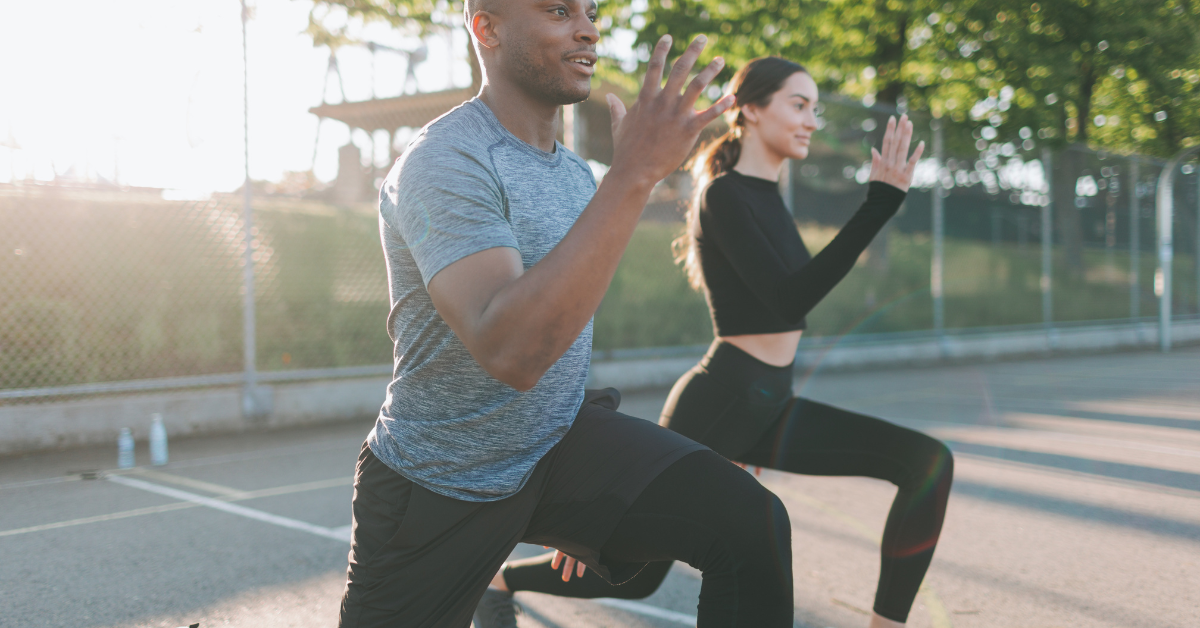Physical activity is a cornerstone of overall health, and its benefits extend to supporting a strong immune system. Studies show that regular exercise can help boost immune function, making the body more resilient against infections and illness. Here’s a closer look at how exercise impacts immunity and how you can incorporate physical activity into your routine for optimal health.
Why Physical Activity is Important for Immune Health
Exercise plays a crucial role in the function of the immune system. Physical activity increases circulation, reduces inflammation, and supports the production of infection-fighting cells, making the body better prepared to fend off illnesses. Moreover, regular exercise can contribute to a lower risk of chronic diseases that compromise immune health.
1. Boosts Circulation of Immune Cells
One of the key ways exercise helps immunity is by improving circulation. When you exercise, your heart rate increases, promoting better blood flow and enabling immune cells to travel more effectively throughout the body.
- How It Helps: Enhanced circulation helps immune cells detect and eliminate harmful pathogens more efficiently.
- Activity Ideas: Activities that get your heart rate up—like brisk walking, jogging, or cycling—can improve circulation and immune response.
2. Reduces Chronic Inflammation
Chronic inflammation can weaken the immune system over time, making the body more susceptible to infections. Regular exercise has been shown to reduce inflammation markers in the body, promoting a balanced immune response.
- Why It Works: Exercise triggers anti-inflammatory effects that lower the risk of chronic diseases and improve overall immunity.
- Recommended Exercises: Moderate aerobic exercises, yoga, and stretching routines are great for reducing inflammation.
3. Enhances Immune Cell Production
Physical activity encourages the production of immune cells, including white blood cells and antibodies, which play a vital role in defending the body against infections.
- Benefits of Immune Cells: White blood cells are responsible for identifying and attacking bacteria and viruses, while antibodies help neutralize these threats.
- Exercise Tip: Aim for 30 minutes of exercise most days of the week to keep immune cell production active.
4. Supports Mental Health and Reduces Stress
Chronic stress can impair immune function, but exercise is a powerful tool for reducing stress and supporting mental health. Physical activity triggers the release of endorphins, which elevate mood and decrease stress.
- Link to Immunity: Less stress means fewer stress hormones (like cortisol) that suppress immune function.
- Activities to Try: Try relaxing activities like walking in nature, swimming, or even dancing—anything that gets you moving and relieves stress.
5. Improves Sleep Quality
Good sleep is essential for a healthy immune system, and regular exercise can significantly improve sleep quality. Deep, restful sleep allows the immune system to repair and prepare for the next day.
- How Exercise Helps: Physical activity regulates your circadian rhythm and helps promote deeper sleep cycles.
- Best Exercises for Sleep: Low-impact activities like yoga, stretching, or a leisurely walk before bed can promote better rest.
6. May Reduce the Severity of Infections
People who engage in regular, moderate exercise tend to experience milder symptoms if they do fall ill, compared to those who are sedentary. A consistent exercise routine enhances immune response, making it easier for the body to recover.
- Why It Matters: While exercise doesn’t prevent infections, it helps the body manage and recover from them more effectively.
- Routine Suggestion: Keep your workouts balanced—over-exercising can actually strain immunity, so aim for moderate intensity.
7. Prevents Age-Related Immune Decline
As we age, our immune system naturally weakens. However, regular physical activity can help slow this decline, making it easier to stay healthy and active well into older age.
- How It Works: Exercise maintains immune strength, preserving the body’s natural defense system as we age.
- Exercise Ideas for Older Adults: Low-impact exercises like swimming, walking, and light strength training are effective and safe for maintaining immune health in later years.
How Much Physical Activity is Needed for Immune Health?
The CDC recommends at least 150 minutes of moderate-intensity aerobic activity or 75 minutes of vigorous-intensity aerobic activity per week, along with muscle-strengthening activities on two or more days a week. This combination is ideal for boosting immunity without over-stressing the body.
Types of Exercises for Optimal Immune Health
- Aerobic Exercises: Walking, jogging, swimming, or dancing. Great for circulation and reducing inflammation.
- Strength Training: Light weight lifting or resistance bands. Supports bone and muscle health.
- Flexibility Exercises: Yoga and stretching help reduce stress and improve sleep quality.
Move for Better Immunity
Regular exercise is a powerful, natural way to enhance immune health. By incorporating physical activity into your daily routine, you’re not only supporting your immune system but also investing in a healthier, more resilient body. Remember, moderation is key—overdoing it can have the opposite effect on immunity, so find a balance that works best for you.
TODAY’S DEAL
Revitalize your health with Tonic Greens!
Boost your immunity naturally! Try Tonic Greens and feel refreshed.
learn more























